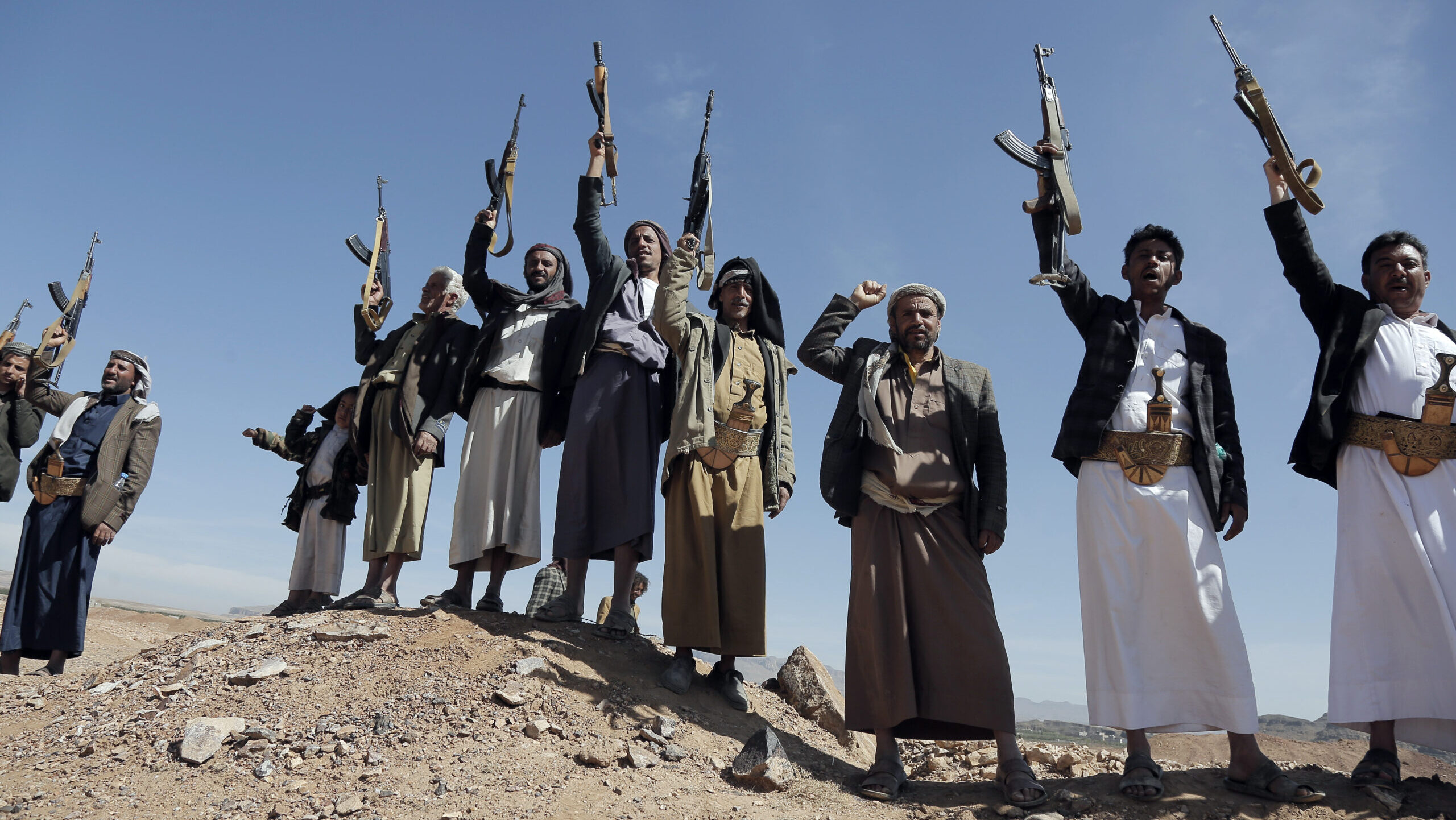Yemen’s Houthis: Regional Bullies for Years
The Houthis, backed by Iran, have escalated their activities from Yemen to attacks on Saudi Arabia, Israel, and international shipping
It’s safe to say that few people outside the Middle East had heard of the Houthis before they started targeting shipping in the Red Sea and firing rockets at faraway Israel.
However, the Houthis of Yemen have been causing serious regional trouble since 2004. They are militant, extremist Shiite Muslim Islamists guided by Iran, determined to take over all of Yemen and also to subvert neighboring Saudi Arabia—all under the West’s radar.
The Houthis have mostly succeeded in their first goal of gaining control of Yemen, though some active opposition persists. Saudi Arabia has backed away from the struggle despite the ongoing Houthi threat.
Israel plays little part in this, except as a foil for the Houthis’ Iranian sponsors.
The Saudis and Houthis traded blows for a decade, with multiple casualties on both sides, until the US brokered a cease-fire in 2022. That is in keeping with an American knee-jerk reaction to world violence: Stop it, the sooner the better, usually with a cease-fire.
The US and its allies are learning, hopefully, that cease-fires work only if both sides actually want to stop the fighting. If that’s not the case, then cease-fires just give time for one or both sides to rearm and prepare for the next round of fighting.
Sound familiar? The UN and others started clamoring for Israeli cease-fires with Hamas in Gaza and Hezbollah in Lebanon just days after Hamas’s Oct. 7, 2023, pogrom in southern Israel and Hezbollah’s almost immediate joining in with thousands of rockets. Israel has mostly resisted international calls for cease-fires, pushing instead for decisive military victories.
The Israeli concept largely worked in Lebanon, but the presence of 100 Israeli hostages in Hamas tunnels has complicated the Gaza military picture above ground.
This holiday season, give to:
Truth and understanding
The Media Line's intrepid correspondents are in Israel, Gaza, Lebanon, Syria and Pakistan providing first-person reporting.
They all said they cover it.
We see it.
We report with just one agenda: the truth.


Israeli policymakers insist that if Israel had heeded the strident calls for a cease-fire with Hezbollah early in the conflict, Hezbollah would have just waited for the next opportunity to unleash another deadly rocket barrage at Israel. Now, with its leadership eliminated, its weapons destroyed, and many of its terrorists disabled or dead, Hezbollah is no longer in the position to launch an all-out attack.
What is needed on both fronts is a diplomatic initiative to solidify a cease-fire and provide for a stable future. That isn’t happening in Gaza and Lebanon—or in Yemen.
Iran has adopted the Houthis as a fellow Shiite extremist Islamist military force. The Houthis were a party to Yemen’s civil war, starting in 2004. Yemen joined the regional uprising of the Arab Spring in 2011 when demonstrators overthrew dictatorial regimes in Egypt, Libya, and Tunisia. By then, though, the Houthis were well on their way to deposing Yemen’s president and taking over large parts of the country.
Not content to wreak havoc in Yemen, the Houthis turned their murderous attention to the Sunni Muslim kingdom of Saudi Arabia. They fired about 1,000 missiles and 350 drones at Saudi military installations, oil rigs, and other civilian targets between 2015 and 2022 alone. Eager to turn their attention inward, Saudi leaders looked for a way to de-escalate the conflict with Yemen—accepting the US-inspired cease-fire.
That move has backfired. Directed by Saudi Arabia’s arch-enemy, Iran, the Houthis began attacking shipping off the Saudi coast in the Red Sea last year, daring the West to do something about it. When little happened, besides some ineffective airstrikes in Yemen, the Houthis started firing rockets at Israel—another provocation aimed more at the West than at the Jewish state.
Given the West’s skittish attitude toward conflict, it’s no surprise that Israel is the one that has carried out the most effective counterstrikes against the Houthis so far, with airstrikes on ports and Houthi installations.
Unfortunately, Israel is too far away to accomplish much more. Its warplanes need to be refueled on their way to and from Yemen, 2,000 kilometers away. An Israeli ground incursion appears out of the question.
While there are calls for an Israeli attack against the mother ship—Iran— that would be a strategic error.
Just as Iran is not exclusively an Israeli problem, neither is the Houthi aggression. The Houthis are targeting world shipping through the vital Bab el-Mandeb Strait as part of the Iranian war plan to destabilize the Middle East and undermine the US and its allies.
All this shows that it’s time for the West, and especially the US, to change its response to violence and aggression by bad actors, especially Iran and its proxies. Instead of automatically calling for cease-fires, the West should push for some level of victory.
The tools for a coordinated Western response are in place. Saudi Arabia is well positioned to be the front for an alliance to smash the Houthis once and for all and weaken Iran in the process. All those billions of dollars worth of American weapons the Saudis have been amassing for decades would be at the disposal of the alliance.
Other countries, including Israel, would need to take part. There might be a political cost to that, like a meaningless nod in the direction of the Palestinians. This would be meaningless because the Palestinians have demonstrated again and again during the past three decades that they do not want peace with Israel—they want peace without Israel.
Such an anti-Iran alliance led by Saudi Arabia and backed by the West could help stabilize the region, especially if Israel goes along with it.
But first, lessons must be learned: Israel is not at the center of every conflict, not every problem has a solution, and not every military conflict needs to be stopped as quickly as possible.


